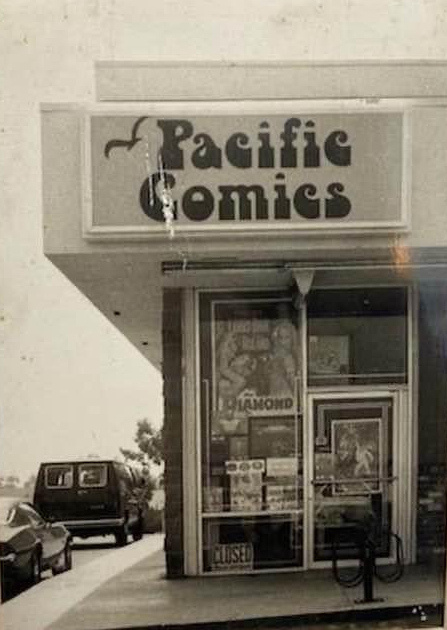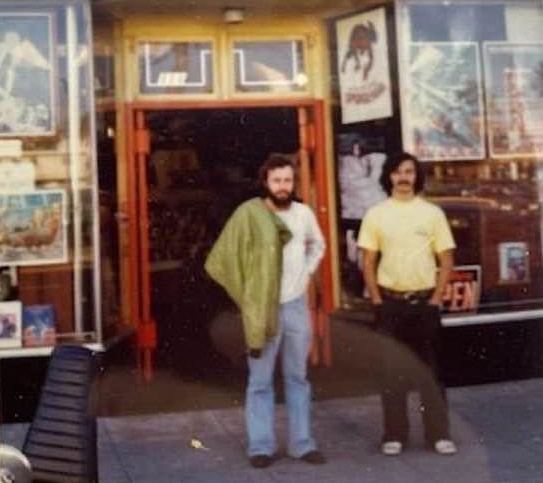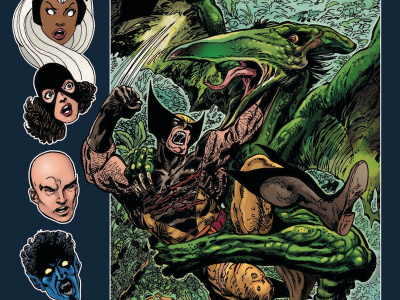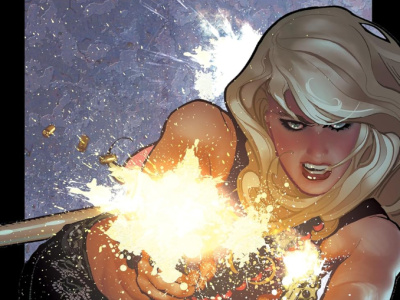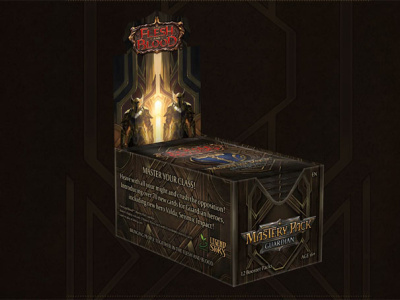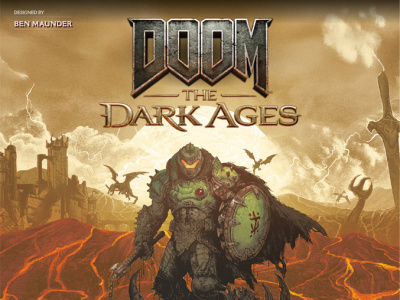Bill Schanes was just 13 when he and his brother, 17-year-old Steve, started selling comics almost by accident. What started out as a small business run out of the brothers’ bedroom grew into four comic shops in San Diego and then into a full-fledged distributorship, and eventually a publisher as well. Part 3 is Schanes’ account of moving to direct distribution and making his first deals with Marvel and DC while still in his teens. Part 1 of this interview focused on the beginning of Schanes’ career, from casually buying and selling comics to opening his store, Pacific Comics. In Part 2 he talks about growing Pacific Comics and moving toward distribution, as well as the state of comics retailing in San Diego and Los Angeles in the 1970s.
To watch a video of this interview, see "ICv2 Video Interview – Bill Schanes."
This interview and article are part of ICv2’s Comics Direct Market 50th Anniversary celebration; for more, see "Comics Direct Market 50th Anniversary."
First Seagate, and then you went direct, right?
We called up Saul Harrison, who was the vice president of something at DC at the time and said, "We want to buy DCs from you guys." He basically said, "Why don't you come to New York. I'll meet with you. We'll discuss it, but you need to bring a $10,000 cashier's check with you to open an account to show us that you're going to be a player that's worth our time to open up to you."
$10,000 in '73 or '74, whatever it was, we didn't have it. But I booked the flight and we sold off tons of stuff that we didn't want to sell just to raise the capital.
I flew to New York the night before because I wasn't sure when planes arrived. I didn't own any suits back then. I had T‑shirts and shorts with strings hanging down, flip‑flops and a pair of old, beat-up Converse tennis shoes as my footwear. I wore my red tennis shoes with some really ratty Levis and a T‑shirt and met Saul Harrison the next morning at 10:00 at the old DC offices.
I was there about a half an hour early because I was so nervous. I'd never met any important people before outside of Comic-Con. I was pacing in front of the DC building, walking back and forth. I didn't have a watch, so I was asking all these guys in three-piece suits what time it was. I didn't want to come too early. So about 10 minutes before I get in the building, go up the elevator to the DC floor, I get out, and there's a receptionist there with the old-style phone with a million buttons. You'd press a button for every office, I guess, or whatever that was. I said, "My name is…" I've always had a very, very low voice from when I was very young. When people talked to me on the phone, they never knew how old I was. You wouldn't ask back then, not that it wasn't politically correct. Just why would you ask?
Why would you expect a kid to be calling a publisher in New York, right?
Right. I get there. I explain to the receptionist who I am and I have a meeting scheduled with Saul Harrison at 10:00 AM. She goes, "OK." She hits a button and goes, "Mr. Harrison, William Schanes is out front for your 10:00 meeting."
He says, "I'll be right out there. Hold on a second."
I can hear this on the intercom. She says, "Sit down." I'm sitting in a little corner area. About 10:10, 10:15—there's a clock on the wall—I'm like, "He's not coming out yet. I wonder what's going on. It's past 10:00. Why isn't he here?” I didn't know etiquette of anything. This is totally freehand everything. So I ask the receptionist again, "Would you mind finding out if he's going to come out? I've traveled a long way, three thousand miles, and besides the expensive hotel room and a plane flight. I've got this money with me."
She calls back Mr. Harrison. He comes out, looks around the lobby—I'm sitting right there—closes the door and goes back inside again. I didn't know what he looked like. I didn't call out and say, "Mr. Harrison, I'm here." That could have been anybody.
It was about 10:30 now. I'm getting not peeved but I'm a little upset. So I said, "Please, ask him to come out. I've been waiting 30 minutes. I think that's long enough." I'm not sure of my exact words but I was encouraging her to make another attempt to get him outside. He's on the intercom saying, "I was just out there. I didn't see anybody."
I yell, "I'm right here." I'm yelling at the intercom, "I'm right here." He comes out and he looks at me. You could tell from his face like, "What a waste of time this is going to be." He totally didn't expect a Levi wearing, flop‑flop, Converse wearing guy with a T‑shirt. [He] almost dismissed me in the lobby.
We shook hands. He said, "Hello." He goes, "You're a kid."
And I said "Yes."
He goes, "I thought I was talking to someone on the phone much older."
I go, "It's my voice. I didn't hide it."
He goes, "I'm sorry, but we can't do any business together."
I says, "Well, I don't understand. I brought the $10,000 cashier's check with me."
He goes, "Well, come on in." Literally, within a minute, we were at his desk and he handed me all kinds of order forms, and paperwork, and a schedule of how to order new comics. I was writing frantically on the old‑fashioned school notebooks, the ones with the black covers and the spines.
Composition book.
Exactly. That was my technology. I'm writing notes as he's talking. He's talking really fast. I talked really fast. I'm not writing fast enough, but I'm writing down enough slogans and enough key words.
He took my check and we ordered comics that month from him. I remember on the way down the elevator… Of course, now we were going to get 60% off, not 50% off. Made another leap in discount. And I was so excited. I was literally jumping up and down in the elevator. This is a huge score for us. Another game changer.
Then, I called Marvel and talked to Ed Shukin on the phone. Ed was the VP of, I think, business back then. I'm not sure if it was sales. It might have been business.
Circulation. He was VP of circulation, I think.
I think you're right, actually.
I asked Ed, "Can we buy Marvel comics from you?"
He says, "I'm going to be out at Comic-Con this year for the first time. How about if I meet you?"
"That would be great. I'd love to meet you."
At Comic-Con, wearing a T‑shirt, my shorts, and floppies because that's Comic-Con attire, especially when you're in the early to mid '70s.
Your thongs…
Exactly right. This was at the original convention center. There's a fountain in the middle of the courtyard. That's kind of a meeting point. You tell everyone, "I'll meet you at the fountain at this time." Everyone just met there, and then you walked someplace else to meet. I told Ed I'd meet him at the fountain and go to lunch afterwards.
That was the convention center at 2nd and C?
Yes, exactly. I saw this guy walking up to me with a three‑piece business suit. He was kind of short and a little bit, I'll say, stubby. I was like a stick, not like I am today, but really thin. I said, "Are you Ed Shukin?" He says yes. "I'm Bill Schanes." He's like, "Oh, you're very young." There's the voice again.
We were talking for a few minutes, and he goes, "Can you hold on a second?" I said, "Of course," because I didn't know what was going on. He looks way across the fountain and across the courtyard. He goes, "That woman over there is really beautiful." Yeah, she's really attractive. I'm like 15 or 16. I haven't done a lot of dating at this point. He's like, "Can you hold on a second?"
I say, "Sure," so he leaves and walks over right at her, right to her. Ed Shukin, the VP of marketing at Marvel. They're talking for a few minutes. Then, I see him produce his hotel key and hand it to her. She puts her hand out and shoves it away. Not interested. So he walks right back over and he goes, "I was trying to get together with her but it didn't work out."
I said, "Ed, the problem is that that's my girlfriend and we live together. It's not going to happen." She walks over. I go, "We don't want to buy any Marvel comics from you anymore. Forget it. We're done." So I left. It was just too insulting. I thought to myself, "Is this what all the New Yorkers are like? Are they this brazen? Are they this insensitive?"
Eventually, we opened up with Ed and it worked out, but it was a humorous, not-so-humorous introduction to Marvel comics on a direct basis.
Then you could really do wholesaling because you were getting 60 off and you could expand your wholesale business, as well as your retail?
Right. The stuff we were buying from Bud was 60 off because we were sharing the discount. Phil Seuling had set the market at 60 off, therefore everyone sold everything at 60 off, from the publisher to the distributor. Even the underground publishers like Ripoff Press, Last Gasp, Print Mint, San Francisco Comic Book Company, and so on. They were all selling at 60 off. You'd wholesale them at 40% or 45, 50 off based on the size of the account.
Can you look big-picture and talk a little bit about how direct distribution changed the landscape for comics?
When we were just starting off, probably 99% of all new comics sold were sold on a newsstand, newsstand being bookstores, grocery stores, supermarkets, 7‑Elevens, convenience stores. Everywhere else but comic shops. Probably in '71, there wasn't 100 comic shops in the whole country. Actually, in the whole world. There might have been 20 or 30 or maybe 40, whatever.
San Francisco had three or four. LA had a couple. New York had a couple. There were a couple overseas. That was the entire environment, so our collective buying power was nothing.
As we started to buy larger quantities and more stores opened up, the publishers realized that the return rates on the newsstand were getting worse and worse. They'd ship 100 copies in, as an example, and 80 would come back as unsold.
Oftentimes, they're having 20 to 25 percent sell through. They were barely making any money or losing money on their print copies. Their saving grace was they had advertising sales, as well, so they had different revenue streams coming in to offset the loss of the single copy sales.
Of course, all the comic book guys were buying nonreturnable, so we were a gold mine.
Somewhere along the line of… There was a big Marvel meeting when Mike Friedrich was in charge of the direct market at Marvel.
That would have been… I just talked to him. That would have been… I think he started in '80 and left in '82. It would have been in that window.
Somewhere around then, my brother shouts at the distributor meeting, "We want a comic for ourselves, just for comic shops." I believe that's how Dazzler #1 came to fruition. I think that might have been the first… I could be wrong, but it might have been the very first item created from Marvel or DC…
It was.
…just for the comic shops.
Right, it was. We ran ads in the Buyer’s Guide. "First direct only comic. Buy 50 for…" whatever.
That was a big breakthrough. Somewheres around that time, the sales had shifted to where more comic shops were opening. Of course, nonreturnable, yes, a much higher discount but really, when you take in the unit cost of selling to a national distributor, the regional distributor, the local ID, the publishers were probably selling to the national guys at 60 off with full returns.
Now, we're buying at 60 off with no returns, so a much cleaner business. They were taking forever to pay, like 90 days. We were paying... If we had any money, we were paying in 30 days. Sometimes we didn't have a lot of money so sometimes we paid a little late. The nature of small business.
That was, I'd say, the late '70s, early '80s, that's when the comic shops' buying power as a collective came into fruition in a pretty meaningful way.
It changed the product as well as the ability to get the comics that you needed to feed the collector market.
I think so.
Carol Kalish was a big proponent, as well.
She was… '82 was when Friedrich and Lapkey hired her. They overlapped for a couple months, I think.
Right.
This has been a great education on the early days of comic retailing and distribution. We'll follow up on the later aspects of your career another time. Thanks very much.
Okay, Milton. Thanks so much.
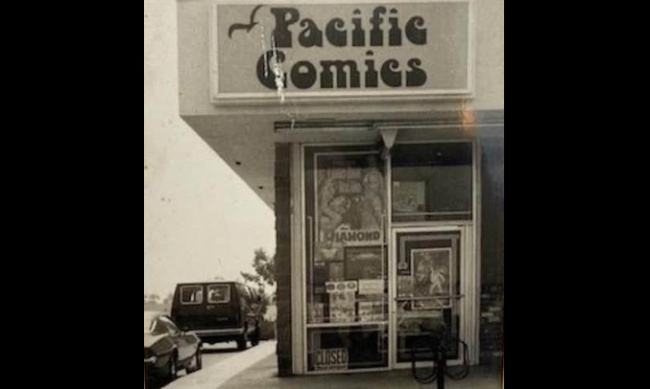
On Becoming a Distributor and Negotiating with Publishers as a Teenager
Posted by Milton Griepp on July 10, 2023 @ 4:05 am CT
MORE COMICS
In Which Jean Grey Survives the Dark Phoenix Saga
July 25, 2025
What If…? Jean Grey survived the end of the Dark Phoenix saga?
Coming February 2026
July 25, 2025
Dark Horse Books has announced The Barb Wire Compendium is coming February 2026
MORE NEWS
Supplementary Booster Set for the Guardian Class
July 25, 2025
Legend Story Studios will release Mastery Pack Guardian , a supplementary booster set for Flesh and Blood TCG , into retail.
By Modiphius Entertainment
July 25, 2025
Modiphius Entertainment announced two new Doom board games.



